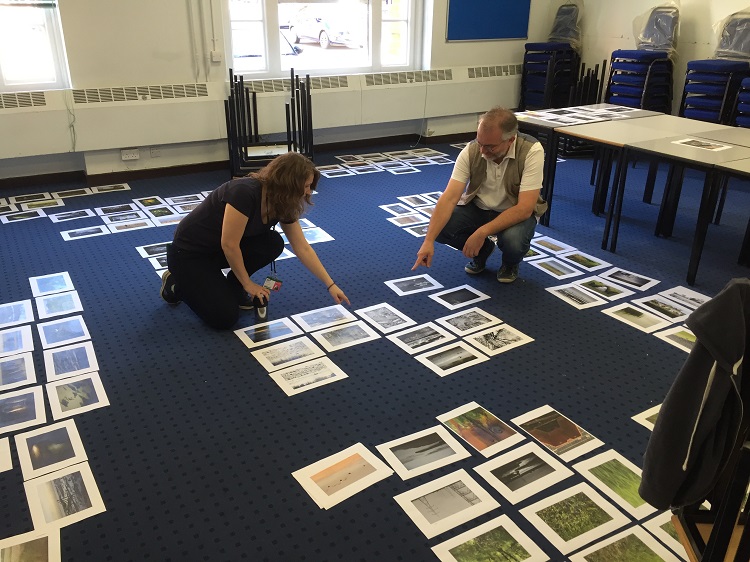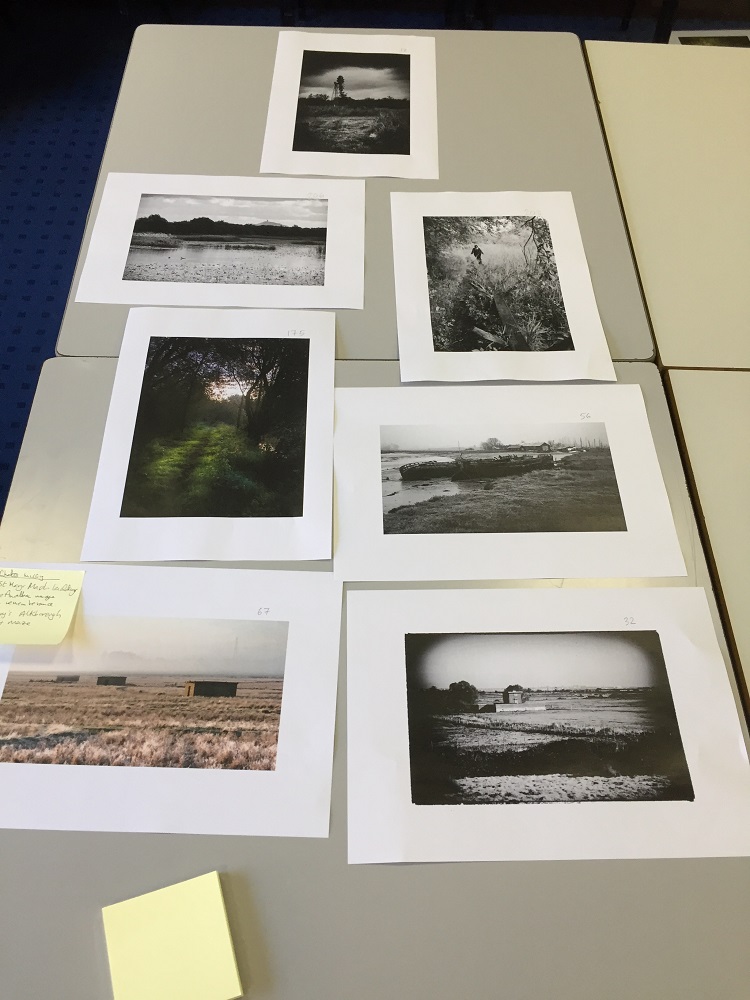To celebrate World Wetlands Day on 2nd February 2020, a special exhibition of photographs will go on display at the Royal Geographical Society in London. The photos will form part of a joint exhibition between two UKRI (United Kingdom Research and Innovation) funded projects: WetlandLIFE and CoastWEB.
Dr Tim Acott, Reader in Human Geography at the University of Greenwich and PI (principal investigator) on the WetlandLIFE project, has been taking photographs of various UK wetlands for over three years and a selection of his shots will form part of the exhibition. You may wonder what defines a wetland? In simple terms, wetlands are parts of our landscape that are defined by the presence of water, and where that water determines or influences most, if not all of the area’s biogeochemistry (the biological, physical and chemical characteristics).
 NRI’s Dr Frances Hawkes, a behavioural entomologist (someone who studies insects) and Dr Acott have begun curating the photos, and together they are narrowing down the selection from an initial 221 to just 30 photos.
NRI’s Dr Frances Hawkes, a behavioural entomologist (someone who studies insects) and Dr Acott have begun curating the photos, and together they are narrowing down the selection from an initial 221 to just 30 photos.
Dr Acott explains how they have decided to approach this mammoth task: “we’re studying the photographs to spot key themes that might emerge, for example control in wetlands, memories in the landscape or subversive use of landscapes. Once identified we will select the shots that best represent those themes and develop a narrative around wetlands.”
“For example, an old decaying wreck stuck in the mudflats or name plates placed on benches in memory of loved ones, both connect the past to the present in different ways and photography can allow us to document this in an aesthetically interesting way.”
The photo exhibition at the Royal Geographical Society, will showcase diverse wetland landscapes, using photography as an analytical tool to explore the values of wetlands. Dr Acott hopes that the exhibition will highlight the fantastic nature of wetlands, and says that for him, the project is very much about supporting their reclamation: “I hope that this ‘photo-essay’, as well as being academically interesting, is something that will speak to the general public in terms of the quality of the visuals and in drawing people into that narrative around wetlands and their value to humans.”
Perhaps for some, the value and indeed the point of a wetland may not always be immediately obvious, but for Dr Hawkes it’s a ‘no-brainer’: “wetlands are so valuable for so many reasons, like flood control, carbon storage, habitats, wildlife, leisure and work. There are many health and wellbeing benefits to wetlands and our research has shown the depth of attachment that people who live and work in wetlands have. We’re interested in how people interact with this place that’s largely inaccessible because it’s wet. You get to see the wetland from the dry bit, or you have to build a boardwalk or use a plank to physically get into the wetland.”
Wetlands provide important ecosystem services by supporting a huge diversity of wildlife like migratory birds, insects and livestock. In Dr Acott’s collection there is a photo of a buffalo that was rescued from a Welsh mozzarella factory  who now lives happily on Chippenham Fen, grazing the marsh and keeping it under control.
who now lives happily on Chippenham Fen, grazing the marsh and keeping it under control.
Dr Hawkes explains: “wetlands are that interesting transition between the really wild and inaccessible and the safe and contained. This exhibition is exciting, it’s an opportunity to tell a different story about wetlands and perhaps encourage people to look at them in a new way. Most places in the UK are not too far from some sort of wetland habitat and a lot of them are managed by charities such as the RSPB so you can get out and enjoy them, get up close to nature and get lots of fresh air.”
 The exhibition, “Reclaiming Wetland Values: Marsh, Mud and Wonder”, is free to attend from Monday 27 January to Sunday 2 February 2020 at the Royal Geographical Society, 1 Kensington Gore, London, SW7 2AR. Doors are open Monday to Friday 10.00am-5.00pm, Saturday and Sunday 10.00am- 4.00pm.
The exhibition, “Reclaiming Wetland Values: Marsh, Mud and Wonder”, is free to attend from Monday 27 January to Sunday 2 February 2020 at the Royal Geographical Society, 1 Kensington Gore, London, SW7 2AR. Doors are open Monday to Friday 10.00am-5.00pm, Saturday and Sunday 10.00am- 4.00pm.
To find out more: